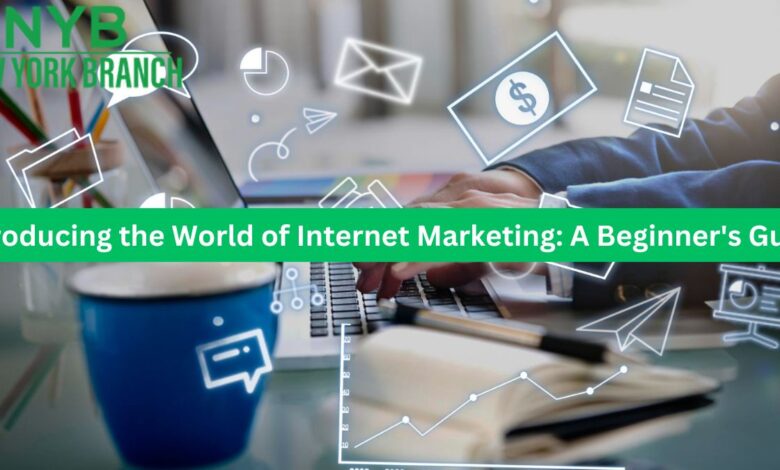Introducing the World of Internet Marketing: A Beginner’s Guide

In today’s dynamic business landscape, internet marketing has become an indispensable tool for companies aiming to thrive in the digital era. With digital marketing accounting for 56% of total marketing spend and projected to surpass $786 billion by 2026, it’s crucial for businesses to understand and leverage online channels effectively.
Understanding Internet Marketing
Internet marketing, also known as digital marketing, is the process of utilizing online channels to connect with an audience, educate them about products, and ultimately convert them into customers. It involves a diverse set of tools such as websites, email, online advertising, and social media.
Diverse Approaches to Internet Marketing
Content Marketing
Content marketing is a comprehensive strategy involving various materials like blog posts, infographics, and podcasts. Its goal is to establish expertise, promote the brand, and provide value to consumers. Businesses need to collaborate with content creators, plan objectives, and distribute content across multiple online channels.
SEO Marketing
Search Engine Optimization (SEO) is the art of optimizing content to rank high in search engine result pages (SERPs). By adhering to Google’s E-A-T criteria (Experience, Expertise, Authoritativeness, Trustworthiness), businesses can organically improve their search rankings and visibility.
Social Media Marketing
Engaging with platforms like Facebook, Instagram, Twitter, LinkedIn, and YouTube, social media marketing allows businesses to connect with potential customers. Running successful social media campaigns requires careful planning, consistent posting, and setting an advertising budget.
Affiliate Marketing
Influencing consumer behavior, affiliate marketing involves partnering with influential individuals or entities who promote products to their followers. Businesses pay a commission for each sale or lead generated by these affiliates.
Email Marketing
Sending targeted and personalized emails to a specific audience fosters customer engagement and promotes products or services. Email marketing boasts a high return on investment (ROI) and requires meaningful content, proper design, and monitoring through an email marketing platform.
Internet Marketing vs. Traditional Marketing
While both share common goals, internet marketing and traditional marketing differ significantly in communication mediums, demographic targeting, budgeting, lead tracking, interactivity, and global reach. Internet marketing offers cost-effectiveness, precise targeting, and easy tracking compared to traditional methods.
Effective Internet Marketing Strategies
1. Search Engine Optimization (SEO)
Optimizing website content for search engines is crucial for better visibility. Focus on keywords, meta tags, and technical aspects while building high-quality backlinks and engaging in social media.
2. User-Friendly Website Design
A seamless user experience is essential for retaining visitors. Ensure responsive design, fast loading times, and accessibility to cater to diverse user preferences.
3. Social Media Outreach
Active engagement with the social media community builds a loyal following. Responding to comments, participating in discussions, and aligning posts with content strategy contribute to a strong online presence.
4. Customer-Centric Approach
Understanding and empathizing with the target audience forms the basis of a customer-centric approach. Create detailed customer personas, map customer journeys, and tailor messaging and content accordingly.
5. Pay-per-Click Advertising (PPC)
Investing in PPC advertising ensures targeted exposure. Platforms like Google and Facebook display ads to relevant audiences, with payment occurring only when users click on the ad.
Conclusion: Embrace the Power of Internet Marketing
In conclusion, internet marketing is a cost-effective, globally-reaching, and results-driven tool that small businesses cannot afford to overlook. By integrating various strategies, businesses can navigate the digital landscape successfully, achieving increased sales, brand awareness, and customer trust.



